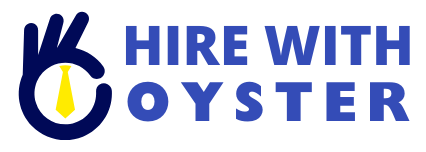
Recruiting might sound like a dream job—talk to people, find them work, help companies grow. But behind the polite smiles and LinkedIn posts lies a world of pressure, unpredictability, and human complexity. Ever tried to play matchmaker for people you’ve never met, under deadlines you didn’t set, for companies that keep changing the rules? That’s what being a recruiter feels like—every single day.
In this article, we’ll take a peek behind the scenes of the recruitment world and uncover what really makes this job tough, fulfilling, frustrating, and everything in between.
- Recruiting: It’s More Than Just a Job Description
At first glance, recruitment seems simple—match the right person to the right job. But that’s like saying a chef just puts food on plates. In reality, recruiters are part counselor, part strategist, and part salesperson. They’re constantly juggling expectations, personalities, and timelines. The job isn’t about resumes—it’s about people, and people are wonderfully unpredictable.
- The Pressure Cooker: Meeting Expectations from All Sides
Recruiters walk a tightrope. On one side, they have hiring managers pushing for the “perfect” candidate yesterday. On the other, candidates want transparency, feedback, and career guidance. Add internal KPIs, targets, and quarterly goals, and you’ve got a recipe for constant pressure. It’s like playing tug-of-war with both ends pulling—hard.
- Ghosting: When Candidates Vanish Without a Trace
Remember that one person who aced the interview, accepted the offer, and then… disappeared? Welcome to ghosting—every recruiter’s nightmare. You follow up, send polite reminders, maybe even call. But nothing. Candidates vanish, and you’re left trying to explain the unexplainable to the client.
- Client Demands: Moving Targets and Shifting Goals
Clients often don’t know exactly what they want—until they see what they don’t want. Job descriptions change, requirements get tweaked, and roles can be put on hold without warning. Recruiters need to stay flexible while somehow still delivering quality candidates on time.
- Time Management: The 25-Hour Day Myth
Recruiters wish for longer days—not because they’re inefficient, but because there’s simply that much to do. Reviewing hundreds of resumes, scheduling interviews, debriefing candidates, updating CRMs, managing emails—it’s nonstop. And still, everyone expects instant responses.
- Emotional Labor: Navigating Rejections and Disappointments
Saying “you didn’t get the job” never gets easier. Imagine telling someone, after weeks of interviews, that it didn’t work out—sometimes for reasons beyond their control. Now multiply that by ten people a week. Recruiters carry the emotional weight of not just their own disappointments but those of everyone they work with.
- The Battle for Talent: It’s a Candidate’s Market
In many industries, top candidates have multiple offers. Recruiters must pitch roles convincingly, respond quickly, and negotiate like pros. You’re not just selling a job—you’re selling a future. One slip, and the candidate goes to your competitor.
- Keeping Up With Tech: Tools vs. Instinct
With AI screening tools, ATS platforms, and analytics dashboards, recruiting has gone digital. But no tool can replace gut instinct—or emotional intelligence. Recruiters today must balance tech-savviness with human insight, making the job both easier and more complex.
- Legal Loopholes and Compliance Challenges
From data privacy laws (like GDPR) to anti-discrimination policies, recruiters must stay legally sharp. One misstep in handling personal data or communicating with candidates could lead to serious consequences—for them and their employers.
- The Commission Conundrum: Feast or Famine?
For many recruiters, especially in agency roles, income depends on commission. That means one month might be booming, while the next feels like a desert. This unpredictability can be financially and mentally exhausting, pushing recruiters to chase results constantly.
- Building Relationships, Not Just Pipelines
A good recruiter doesn’t just place candidates—they build trust. It means checking in even when you don’t have a role, remembering birthdays, and understanding long-term goals. It’s not about filling jobs; it’s about building careers.
- Managing Employer Branding and Candidate Experience
Today’s candidates care about how they’re treated during the process. Poor communication? Delayed feedback? That gets shared on Glassdoor or social media. Recruiters play a vital role in shaping employer reputation, often without full control over the process.
- Remote Work and Global Hiring: The New Normal
Remote hiring opens access to global talent—but also brings timezone conflicts, culture gaps, and unfamiliar employment laws. Recruiters now need to be part diplomat, part HR consultant, and part travel agent.
- Diversity and Inclusion: More Than a Buzzword
Companies want diverse teams—and rightly so. But that puts pressure on recruiters to source from wider pools, challenge unconscious biases, and advocate for fairness. It’s necessary work, but it adds another layer of responsibility to an already demanding role.
- Why Recruiters Keep Going Despite It All
So with all these challenges, why do recruiters stick with it? Simple: the people. There’s real joy in helping someone land their dream job. In hearing “I got the offer!” after weeks of effort. In knowing you made a difference. For many recruiters, that’s worth all the rest.
Conclusion
Being a recruiter isn’t easy. It’s fast-paced, emotionally demanding, and full of invisible hurdles. But it’s also rewarding, impactful, and deeply human. Behind every job offer is a story—a recruiter who worked hard to make it happen.
So next time you see a recruiter post about a new role, remember: they’re not just matching resumes. They’re navigating a world of challenges, one conversation at a time.
FAQs
- Why is being a recruiter so stressful?
Recruiting involves juggling multiple demands—candidates, clients, deadlines, and targets—all at once. It’s a high-pressure job with unpredictable outcomes. - What are the biggest challenges recruiters face today?
From candidate ghosting and changing client needs to staying updated with tech and legal compliance, recruiters face a wide range of challenges daily. - How do recruiters stay motivated?
Despite the stress, recruiters find motivation in helping people, closing roles successfully, and making real human connections. - Is recruitment more difficult now with remote work?
Yes. While remote work expands talent pools, it adds complexity in communication, scheduling, compliance, and onboarding. - Do recruiters really influence hiring decisions?
Absolutely. Good recruiters guide both candidates and hiring managers, helping ensure the right fit and a smooth process on both sides.



